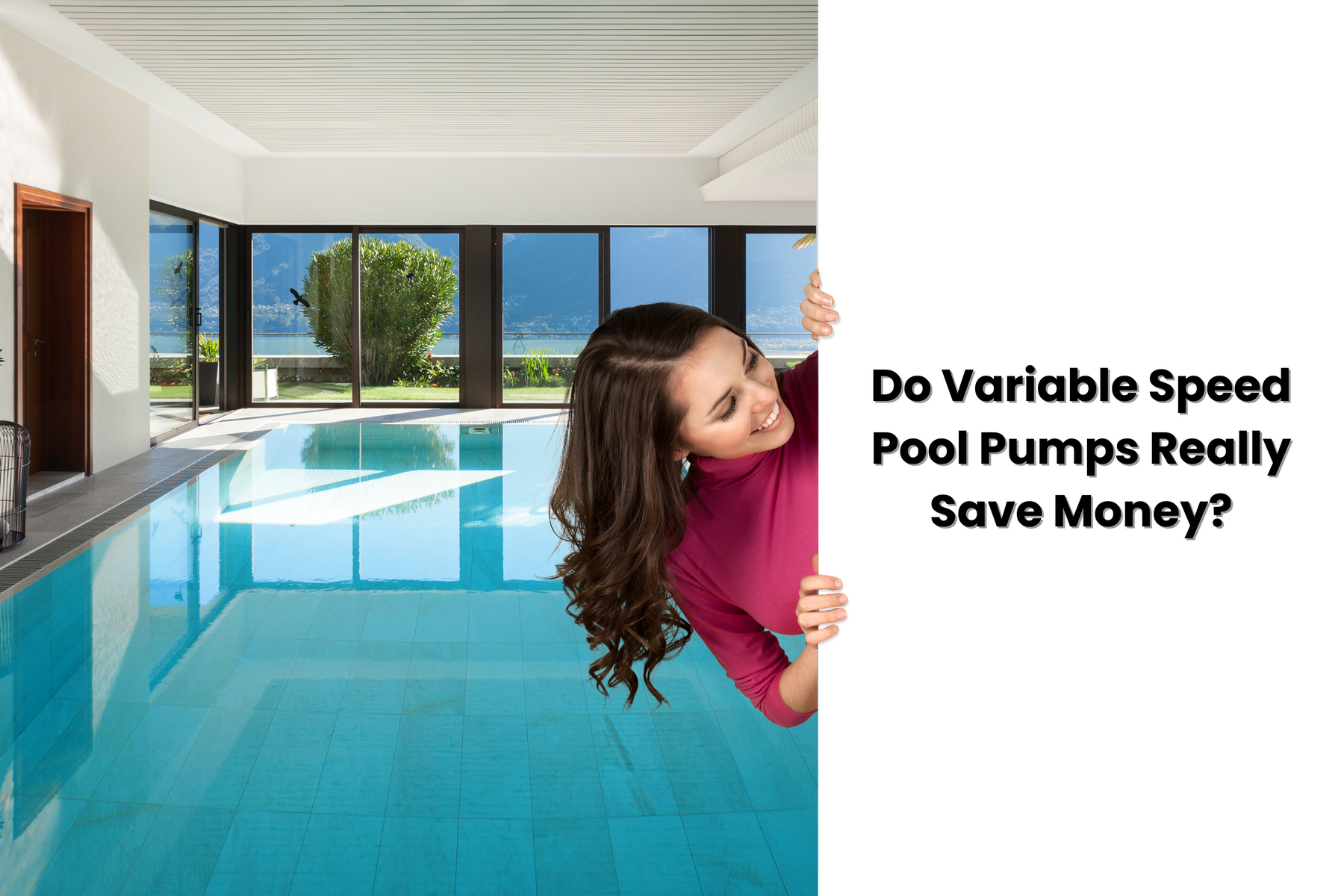
Do Variable Speed Pool Pumps Really Save Money?
Understanding How Variable Speed Pumps Save Energy: The Pump Affinity Law
Short answer: Absolutely. These smart pool pumps can cut your energy costs significantly - sometimes by up to 90%! But how does a pump running slower end up saving you more? It all comes down to physics, smart tech, and a better way to run your pool. Let’s break it down.
Think of this like driving a car. Flooring the gas burns way more fuel than cruising at a steady pace. Single-speed pumps are like always driving 100 mph - even if you're just going around the block.
That’s where the Pump Affinity Law comes in. It says that when a pump slows down, it doesn’t just use less energy - it uses way less. For example, cutting pump speed in half can reduce energy use by more than 85%.
It sounds simple, but this one shift can mean big savings for your pool’s power bill.
Permanent Magnet Motors and Programmable Speeds
Variable speed pumps use permanent magnet motors - the same kind used in electric cars. They’re way more efficient than the old-school motors in traditional pumps.
Plus, these pumps let you program the speed you want. Want it to run low and slow all day? Done. Need a stronger push to clean the pool or run water features? You can do that too.
This flexibility is what makes these pumps so smart. You’re not wasting energy when you don’t have to.
Calculating Your Potential Savings: An Investment Analysis
Let’s talk money. Yes, these pumps cost more up front. But over time, they usually pay for themselves.
Upfront Cost Versus Long-Term Payback
A single-speed pump might cost less to buy, but it can add $800 to $1,200 to your electric bill every year. A variable speed pump? It might use as little as $200 to $300 in electricity over the same time.
That’s a $500 to $1,000 difference every year. So even if you pay $1,500 to install a variable speed pump, you could make that money back in under two years. After that, the savings just keep rolling in.
Some pool owners also qualify for rebates from their electric company. That can lower your upfront cost even more.
Are Variable Speed Pool Pumps Worth It? Beyond the Financial Savings
Saving money is great, but that’s not the only reason people are switching. These pool pumps come with other benefits that make pool life easier and better overall.
Enhanced Pool Performance and Water Quality
When your pump runs at lower speeds for longer periods, your pool water stays cleaner. Chemicals work better. Your filter catches more debris. And the water circulates more evenly throughout the day.
That means fewer algae issues and less time worrying about cloudy or unbalanced water. Some pool owners even notice they use fewer chemicals overall, which adds up to even more savings.
Quieter Operation and Extended Pump Lifespan
One of the first things people notice after upgrading? The quiet. Variable speed pumps run so much quieter than single-speed models, especially on lower settings. It’s a big upgrade if you're trying to relax by the pool without hearing a motor humming in the background.
And because they’re not running full blast all the time, these pumps last longer. Less wear and tear means fewer repairs and a longer lifespan - which is another way they save you money over time.
Bottom line: If you’re trying to cut energy costs, keep your pool cleaner, and avoid the noise and hassle of old-school pumps, a variable speed model is a smart move. They’re not just efficient - they’re a better fit for how most people actually use their pools.
Related reading:




Leave a comment